

A Biography of Latin and the World it Created
NICHOLAS OSTLER

To the memory of my parents
Kenneth MacLachlan Ostler
Yvonne Louise Ostler, née Jolly
DOS EST MAGNA PARENTIVM VIRTVS
The virtue of parents is a great endowment.
Horace, Odes, iii.24
HISTORIAM VERO, QVA TOT SIMVL RERVM LONGA ET CONTINVATA RATIO SIT HABENDA CAVSAEQVE FACTORVM OMNIVM SINGVLATIM EXPLICANDAE ET DE QVACVMQVE RE IVDICIVM IN MEDIO PROFERENDVM, EAM QVIDEM VELVT INFINITA MOLE CALAMVM OBRVENTE TAM PROFITERI PERICVLOSVM EST QVAM PRAESTARE DIFFICILE.
But a history, in which a long, continuous account must be given of so many things at once, and the causes of all the events explained singly, and a judgment offered on each, with its infinite-seeming mass bearing down on the pen, is as dangerous to propose as it is difficult to deliver.
Leonardo Bruni, Historia Populi Florentini, preface
IDEO AVTEM PRIVS DE LINGVIS, AC DEINDE DE GENTIBVS POSVIMVS, QVIA EX LINGVIS GENTES, NON EX GENTIBVS LINGVAE EXORTAE SVNT.
Therefore we have first discussed languages, and only then peoples, because peoples have arisen from languages, not languages from peoples.
Isidore, Etymologiae , ix.1.14
LECTOR INTENDE: LAETABERIS.
Reader, pay attention. You will enjoy yourself.
Apuleius, Metamorphoseon , i.1
Cover Page
Title Page
Dedication To the memory of my parents Kenneth MacLachlan Ostler Yvonne Louise Ostler, née Jolly DOS EST MAGNA PARENTIVM VIRTVS The virtue of parents is a great endowment. Horace, Odes, iii.24
Epigraph HISTORIAM VERO, QVA TOT SIMVL RERVM LONGA ET CONTINVATA RATIO SIT HABENDA CAVSAEQVE FACTORVM OMNIVM SINGVLATIM EXPLICANDAE ET DE QVACVMQVE RE IVDICIVM IN MEDIO PROFERENDVM, EAM QVIDEM VELVT INFINITA MOLE CALAMVM OBRVENTE TAM PROFITERI PERICVLOSVM EST QVAM PRAESTARE DIFFICILE. But a history, in which a long, continuous account must be given of so many things at once, and the causes of all the events explained singly, and a judgment offered on each, with its infinite-seeming mass bearing down on the pen, is as dangerous to propose as it is difficult to deliver. Leonardo Bruni, Historia Populi Florentini, preface IDEO AVTEM PRIVS DE LINGVIS, AC DEINDE DE GENTIBVS POSVIMVS, QVIA EX LINGVIS GENTES, NON EX GENTIBVS LINGVAE EXORTAE SVNT. Therefore we have first discussed languages, and only then peoples, because peoples have arisen from languages, not languages from peoples. Isidore, Etymologiae , ix.1.14 LECTOR INTENDE: LAETABERIS. Reader, pay attention. You will enjoy yourself. Apuleius, Metamorphoseon , i.1
Praefatio
Part I : A Latin World
Chapter 1
Chapter 2
Chapter 3
Chapter 4
Chapter 5
Chapter 6
Part II : Latin Recruits
Chapter 7
Chapter 8
Chapter 9
Chapter 10
Part III : Worlds Built On Latin
Chapter 11
Chapter 12
Chapter 13
Chapter 14
Part IV : Latin In A Vernacular World
Chapter 15
Chapter 16
Chapter 17
Chapter 18
Chapter 19
Chapter 20
Appendix I
Appendix II
Appendix III
Notes
Bibliography
Index
About the Author
Praise
By the Same Author
Copyright
About the Publisher
NOWADAYS LATIN SEEMS A comical language. Its antiquity overwhelms us and we are embarrassed. The thing to do with it is make laconic remarks ( mea culpa ‘my fault’, carpe diem ‘pluck the day’, veni vidi vici ‘I came, I saw, I conquered’, tu quoque ‘you too’), cast spells ( reparo ‘I repair’ (my spectacles), expecto patronum ‘I await the master’), or translate children’s classics ( Winnie Ille Pu, Alicia in Terra Mirabili, Harrius Potter ). Modern English students of Latin receive their lessons by courtesy of a Roman mouse, Minimus Mus . The sheer ponderosity of the Latin word-endings calls forth guffaws in English speakers, whether it is Monty Python’s Pontius Pilate defending the honour of his friends Biggus Dickus and wife Incontinentia Buttox, or anonymous macaronic punsters, providing Anglo-Latin nonsense:
boyibus kissibus priti girlorum
girlibus likibus wanti somorum.
And then there are the associations with anatomy and sex, where Latin seems a whole language provided for purposes of euphemism: fellatio, coitus interruptus, eiaculatio praecox . When Queen Elizabeth II rather poignantly called 1992 her annus horribilis , the Sun newspaper immediately had the vulgar wit to translate it as ‘one’s bum year’.
Latin is often happy to be ridiculous. Plautus’ twenty-one comedies from the third century BC are the first substantial set of texts that have survived in it; and faced with current events, as Juvenal pointed out in the second century AD, DIFFICILE EST SATVRAM NON SCRIBERE ‘it is difficult not to write a satire’.
But it was not always frivolous: for more than two thousand years written Latin was the preeminent mode of serious expression in Europe. That is a long time, and time for a lot of business. Even so, one of its first recorded poets, Naevius, was coyly doubtful of its future:
ITAQVE POSTQVAM EST ORCHI TRADITVS THESAVRO, OBLITI SVNT ROMAI LOQVIER LINGVA LATINA.
And so after he passed to the vault of Orchus [the Underworld], the Romans forgot how to speak the Latin language. (Naevius, 204 BC)
Naevius’ jocular prediction was not borne out. Yet at the other end of its history, there was just as little comprehension of what the future held in store for Latin. Eighteen centuries later and shortly before it was at long last to go out of active use, a disgraced former chancellor of England, expressing relief at the final publication of his work in Latin, had roundly stated his faith in its durability among languages: “For these modern languages will at one time or another play the bank-rowtes [bankrupts] with books; and since I have lost much time with this age, I would be glad as God shall give me leave to recover it with posterity” (Francis Bacon, AD 1623). Those who lived with and in Latin clearly could not see the full trajectory of its history, the strengths and ultimately the weaknesses revealed during these two millennia. But that trajectory is what this book sets out to reveal.
Ad Infinitum tells the story of how Latin spread, first as the speech of an unremittingly aggressive and expansive city-state, Rome, then as the lingua franca of the barracks, farming estates, and urban trading centres that its empire established across the lands of the whole western Mediterranean; and of how much later it would spread as the medium of a Christian church that went even farther, seeking converts out to the Atlantic coast of Ireland, the fjords of Norway, and the plains of eastern Poland. Latin was a language spread by force of arms, colonial settlement, trading networks, cultural diffusion, military recruitment, and religious conversion. The character of the civilization expressed in this language changed over time, but there were elements—associated with Latin—that did not change.
Читать дальше
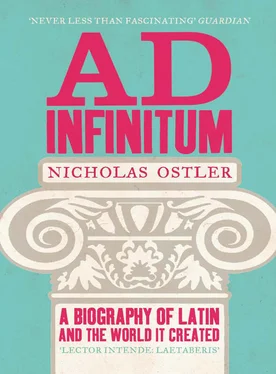



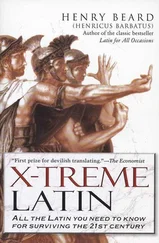

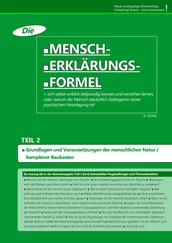
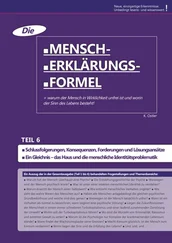
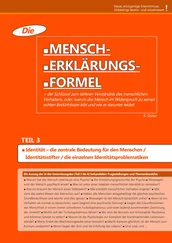
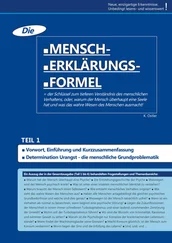
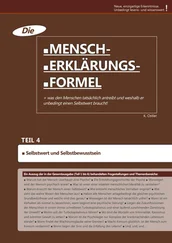
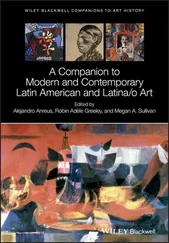

![Nicholas Timmins - The Five Giants [New Edition] - A Biography of the Welfare State](/books/701739/nicholas-timmins-the-five-giants-new-edition-a-thumb.webp)
